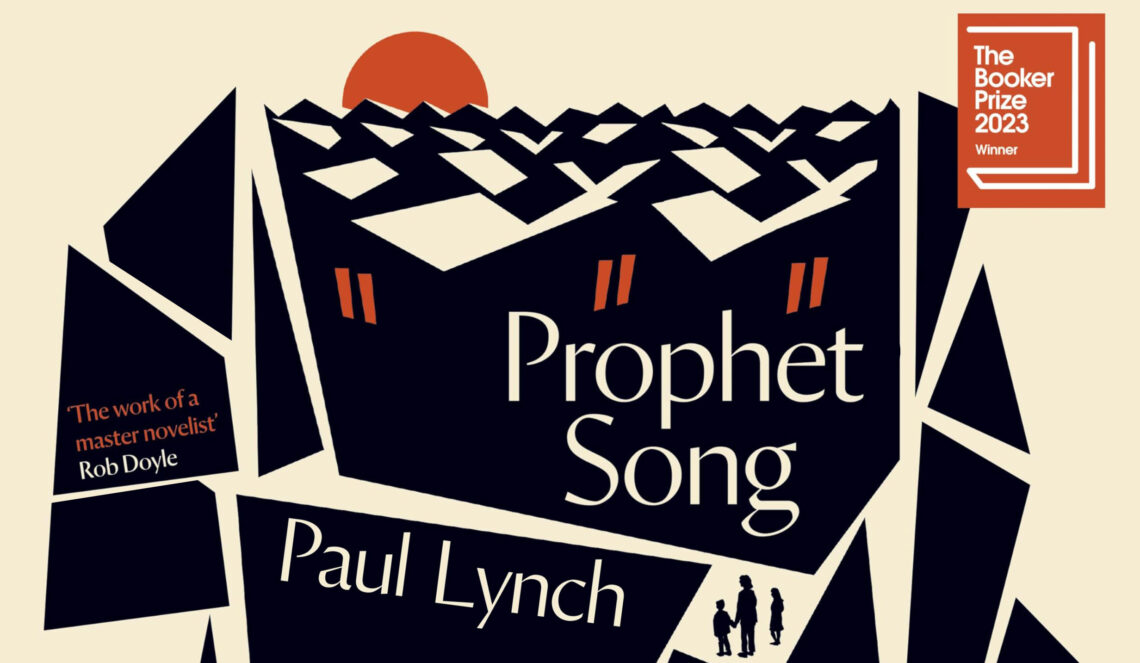
Reading Highlights from 2024
I missed the boat for TGCA’s Year-in-Books series this year (see last year’s picks here). Nevertheless, here are some of the books I enjoyed in 2024.
Fiction
My two favourite fiction books this year were warning-shots fired from slightly different political trajectories.
In Prophet Song, Paul Lynch’s protagonist Eilish Stack—wife, mother and microbiologist—watches in eloquent horror as her native Ireland slouches toward a Pinochet-like tyranny and then civil war. As her personal loses accumulate, Lynch draws us close enough to hear Eilish’s heart break. We feel her dread and see how the ordinary (and extraordinary) concerns of her life make it impossible for her to escape the tragedy. Lynch’s writing is raw, profound and lyrical:
The end of the world is always a local event, it comes to your country and visits your town and knocks on the door of your house and becomes to others but some distant warning, a brief report on the news, an echo of events that has passed into folklore.
Both books do an excellent job of showing the noose tightening; both command us to gird ourselves against the hatred and hypocrisy of this troubled age.
Lionel Shriver’s Mania (see my review here) aims at a different target; not the rough beast of authoritarianism, but the pressure to yield before obvious folly. In Shriver’s alternative US, all prejudice against stupidity has been suppressed by law and opprobrium—at great cost to the country and the protagonist. Shriver’s caustic satire creates a very different reading experience from the deep pathos of Lynch’s elegy, but both books do an excellent job of showing the noose tightening; both command us to gird ourselves against the hatred and hypocrisy of this troubled age.
Other fiction books/series that made my shortlist included:
Christopher Ruocchio’s Suneater books (1-6) is a much (and justifiably) raved-about, science-fiction series with many nods to the golden age of the genre, and deep historical and literary connections to the classical world. As well as these things there is a corrupt Imperium, strange chthonic entities, weird time stuff, and Something Else beyond it all. The author returned to faith while writing the series, and it shows.
The Mercy of Gods, James S. A. Corey: In this first book of their new series, the authors of the rollicking Expanse series (writing under a joint pseudonym) journey further out into the future where humanity has forgotten its homeworld, and those humans who live on the planet Anjin are about to have a nasty encounter with a very diverse alien hegemony.
Difficult Loves, Italo Calvino. I loved reading Calvino’s Invisible Cities many years ago, but have never managed to read any more. Andrew Errington’s excellent ABC Easter reflection, which made wonderful use of Calvino’s “Adventure of a Skier,” made me decide to read more. I didn’t enjoy these short stories as much as I did Invisible Cities, and I don’t think I would have seen what Errington sees, but it’s hard to go past sentences like this:
Beyond the surface of the page you entered a world where life was more alive than here on this side: like the surface of the water that separates us from that blue-and-green world, rifts as far as the eye can see, expanses of fine, ribbed sand, creatures half animal and half vegetable.
Non-Fiction
I thank God for Rory Shiner and his clear, enthusiastic, yet profound, presentations of gospel realities. One Forever and The World Next Door (with Peter Orr) were both great.[1] Forgiven Forever is too. Shiner wants us to not only understand the cross, not only to understand how it reconciles us to God, but also to grasp how God’s forgiveness makes life better in the graceless world of cancel culture, shaming, failed leaders and self-recrimination. Christians at all stages would benefit from reading this refreshing book.
Shiner wants us to not only understand the cross, but also to grasp how God’s forgiveness makes life better.
Glen Scrivener’s The Air We Breathe is a great book for our current moment. As moderate secular thinkers wonder where Western culture went wrong—and dare to ask whether maybe, just maybe, some of our freedoms and social capital came from Christianity—The Air We Breathe, is here to close the case. Partly a distillation of longer books (Tom Holland’s Dominion, for example) and partly a product of Scrivener’s own critical reflections, The Air We Breathe is concise and compelling. I have given copies to one friend and commended it to another. I strongly recommend the book for both Christians and not-yet-believers.
Andrew Wilson, God of All Things. I think a large part of why evangelicals love C.S. Lewis is because he fills in a gap between creation and salvation. Other Christian traditions have paid more attention to God’s common grace (sometimes wisely, sometimes not), but we have too often treated Creation and its specificities as green-screen behind the main drama. In God of All Things, Wilson helps correct the error by offering theological reflections on a miscellany of God’s creation: animals, birds, dust, tools, galaxies, flowers, honey and so on. Wilson’s meditations sometimes stray into speculation but they are selected from Scripture and full of joy (see further reflections here).
Notable re-reads in the non-fiction category also included C.S. Lewis’s God in the Dock and Richard Sibbes’ The Bruised Reed.
[1] For some reason, I haven’t read Risen Forever, but I’m sure that’s great too.




